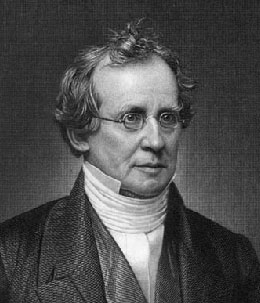Carson: Hodge’s “Storehouse of Facts”


“Frequently quoted as proof of his irremediable dependence on Scottish Common sense are the following words from Charles Hodge: ‘The Bible is to the theologian what nature is to the man of science. It is his storehouse of facts; and his method of ascertaining what the Bible teaches is the same as that which the natural philosopher adopts to ascertain what nature teaches.’ These words are commonly taken to reflect at least two unfortunate shifts: first, an uncritical dependence on induction in theology, a method taken over directly from Baconianism mediated through Scottish Common Sense; and, second, a novel view of the Bible that deemphasizes its role as a guide for life, a source for truths necessary for salvation, and a means of grace, while seeing it as a ‘storehouse of facts,’ the quarry from which systematic theology is hewn.
Probably too much is being made of this sentence. It is essential to recognize that Hodge make his remark in the context of his treatment of the inductive method as applied to theology — and to nothing else. Hodge develops the thought further to show such principles as the importance of collecting, if possible, all that the Bible has to say on a subject before proceeding to inductive statements on the subject, undertaking the collection (like the collection of facts in science) with care, and constantly revising the induction in the light of fresh information. He does not in this section of his work seek to establish the nature of the Bible’s truthfulness; his subject is prolegomena, not bibliology. When Hodge does, in fact, turn to the doctrine of Scripture, he is immensely sophisticated and balanced; but here his focus is elsewhere. The most that could be deduced from this one passage about Hodge’s doctrine of Scripture are his beliefs that all the Bible is true, that its content is the stuff of systematic theology, and that its material is sufficiently interrelated to belong to the same system.”
Collected Writings on Scripture, D. A. Carson, 72.


